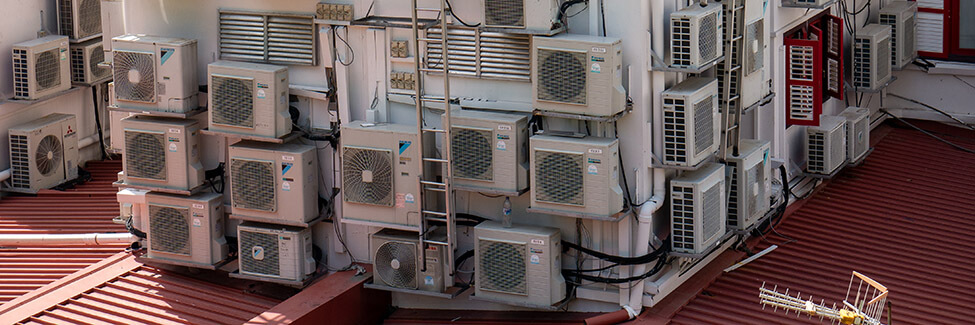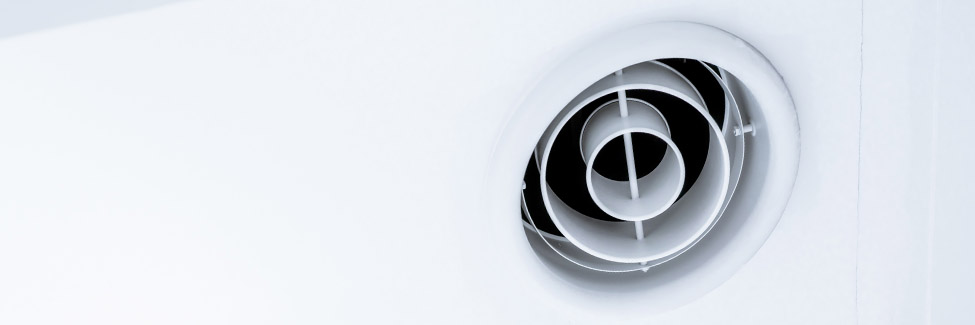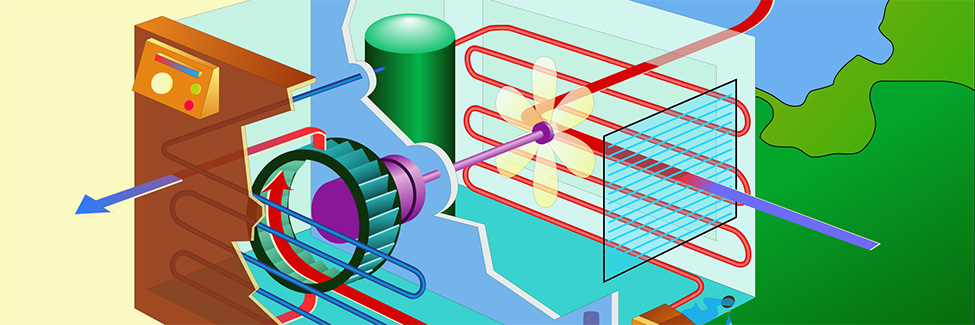
Why Is My AC Running But Not Cooling The House?
Florida is among the warmest states in the U.S., and around 86% of homes are equipped with proper central air conditioning to combat the sweating heat. But what do you do when your AC is running but not cooling the house anymore?
According to Enqode Inc, the most common reason ACs no longer blow cold air in the house is dirty filters or incorrectly adjusted thermostats. However, several more complex issues can prevent your AC from blowing cold air.
In some cases, you can repair the issue yourself, but there are situations when a professional is needed. The worst situation you can encounter is the need to replace your AC system entirely, but this type of situation is pretty rare. Let’s see precisely why an AC unit might not cool the house anymore and what you can do to fix it!
Common Reasons Why AC System Runs But Doesn’t Cool House
Incorrectly Adjusted Thermostat
Before you call in a professional, consider some of the most common reasons your AC unit isn’t cooling your house anymore. The first thing you should check is the thermostat settings. Ensure your thermostat is set to cool. If it’s already set and still not working, check the temperature settings in case someone changed them recently.
If the settings are off, set for constant fan “on,” or set to heat, and switch it back to cooling. When the system restarts, wait a couple of minutes and check if the cold air is blowing from the registers.
Dirty Air Filter
Another common reason your AC might not run properly is the air filter. As air filters catch dirt, dust, and other particles, they fill up, eventually creating airflow blockages that reduce the AC efficiency of your home.
If the thermostat checks out and still you don’t have cooling air, then find your AC’s air filter. Turn the system off before you remove the filter and do a check-up. Do a cleanup if necessary. Note that filters may need to be changed anywhere from every month to every 6 months depending on use and environment.
Blocked Condenser Unit
In most cases, a central air conditioning system includes an outdoor condenser unit. The outdoor unit has a big condenser coil with thin metal fins spaced together tightly. If your AC is running but not cooling the house, your outdoor coil may be blocked or clogged.
You can clean it, but proceed with caution. Clear the debris, vacuum the coil carefully with a brush attached, or rinse gently with a hose. If your AC isn’t working by this point, it’s time to call in a professional.
Heat Pump is Damaged
Some outdoor units are heat pumps. These look similar to an AC units but have a couple of different components responsible for your home’s cooling. They operate like an air conditioner system’s condenser unit and have the same vulnerabilities such as clogged coils, frozen coils, compressor malfunctions, refrigerant leaks, and others.
If the heat pump is the issue, you’ll need to check the thermostat settings, air filter, or condenser unit for the vulnerabilities mentioned above. If everything seems fine, but your AC isn’t cooling your home, call in a pro.
Frozen Evaporator Coil
A very important part of your central air conditioning system is the evaporator coil. If you have an indoor furnace, the evaporator coil has its own cabinet outside it. If the indoor unit is a fan coil, the evaporator coil is located in the fan coil cabinet.
Your AC might not be able to cool your house if you have a frozen evaporator coil. Here are the signs you should look for:
The copper refrigerant tubing from the coil cabinet has frost on it
The cooling feature isn’t working properly
Utility bills are higher than usual
Excessive condensate drainage near your indoor unit
Frost forming on the outdoor unit or exterior refrigerant tubing
The access to the evaporator unit is quite complex, and if you suspect this is the issue, you should call in an HVAC professional.
Refrigerant Leak
An essential chemical responsible for the AC cooling process is the refrigerant. This chemical flows through your system’s indoor and outdoor coil, and it changes from liquid form to gaseous form, which draws heat energy and humidity from the indoor air, releasing it outside to cool your house.
Refrigerant leaks have different severity levels. In most cases, refrigerant leaks halt your AC system from blowing cold air or make your system run for more extended periods but with no visible cooling effects. In the worst cases, it can damage your compressor or even make it fail, leading to a complete system shutdown. This is another issue that only an experienced HVAC professional can deal with.
Air Conditioner is Undersized
All air conditioner units are “sized” based on the level of cooling they can provide to a household. Usually, even if your air conditioner is undersized, you might not notice any problems until the temperatures outside are above average.
When higher temperatures outside are present, your undersized AC unit will struggle to perform its functions, resulting in poor cooling, which can affect your sleep quality, learning, and just about everything you do in your home. It is difficult to estimate if your AC unit is undersized for your home. There are various factors to consider, such as local climate, square footage, construction quality, insulation, etc.
If you face this issue, there are two possible options to solve it. You can add a ductless unit to cool down the hot spaces in your home, or you can replace your air conditioning system entirely, which is the most efficient solution.
To address air conditioner sizing issues, contact a qualified HVAC professional. They will be able to assess your home’s proper cooling needs and provide you with the right AC unit that has the optimal cooling capacity.
Final Words
Regular maintenance and check-ups of your AC unit can do wonders in the long run. Though you can some fix certain AC issues by yourself, others require a professional to avoid damaging your AC unit even further.
Still have questions? Ask an HVAC expert directly via chat or phone.
Published on 2022-03-25 by HVAC Ninja Team
Last updated on 2022-03-25


